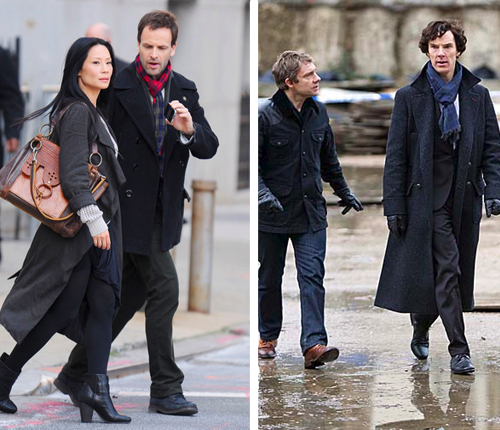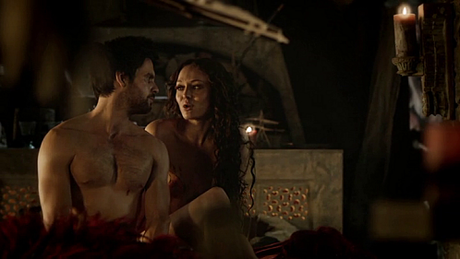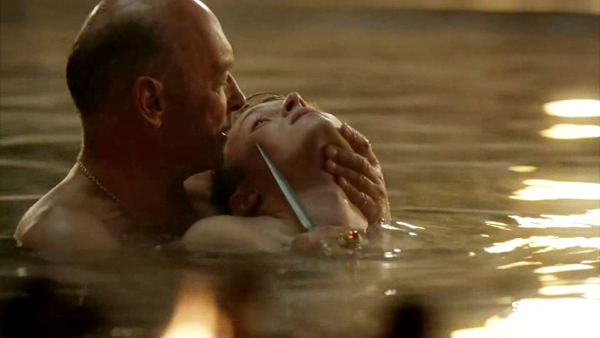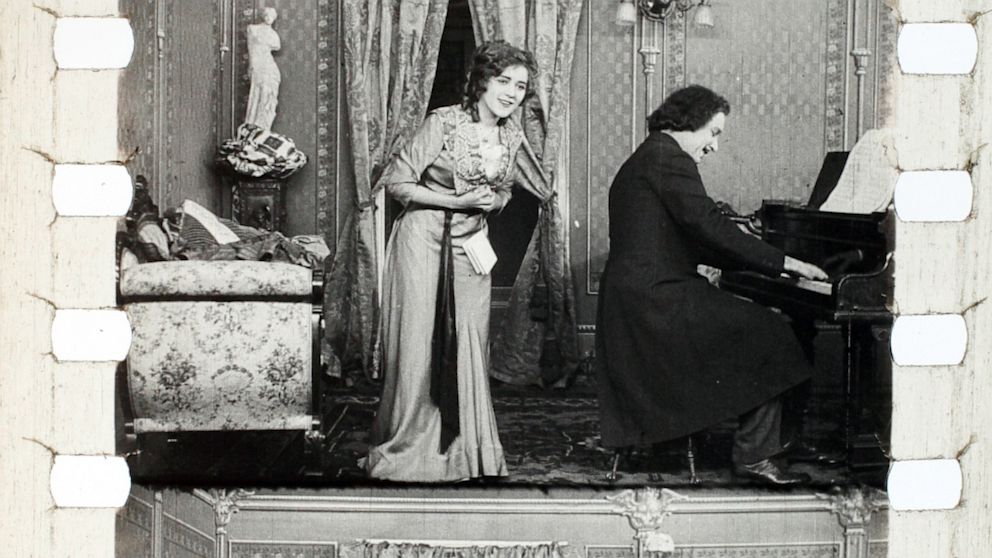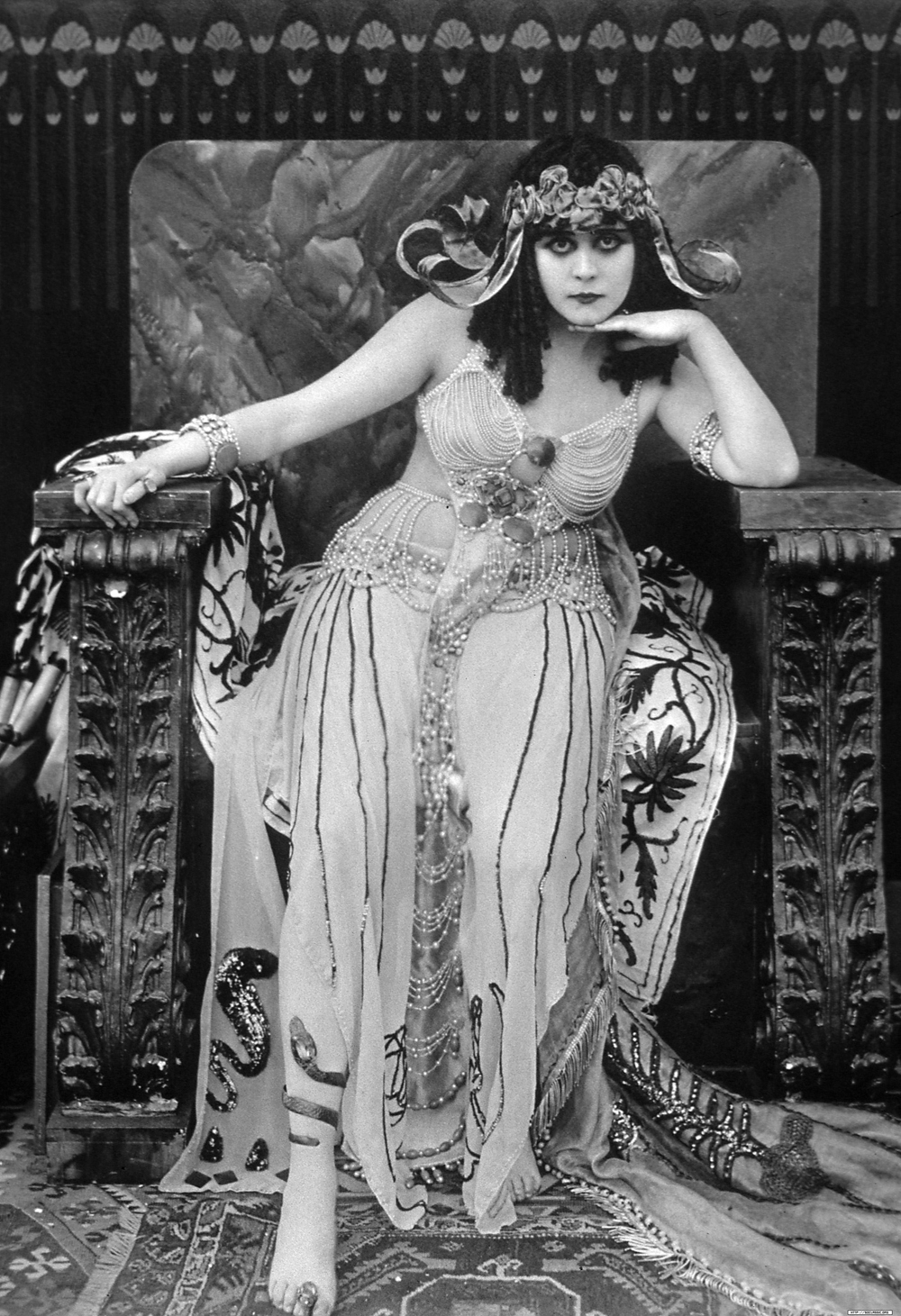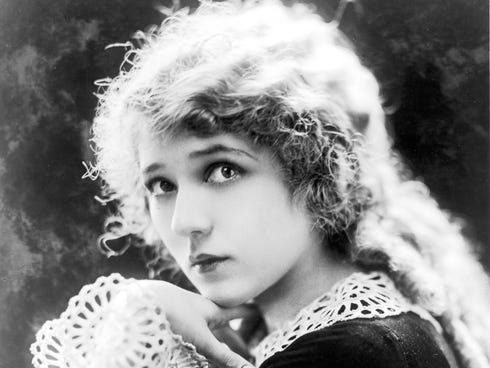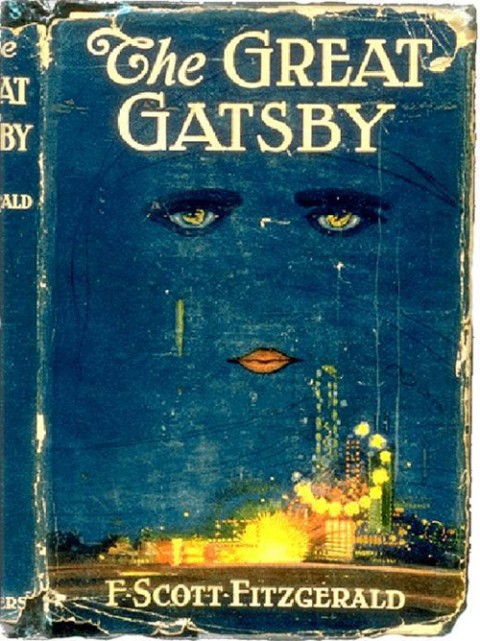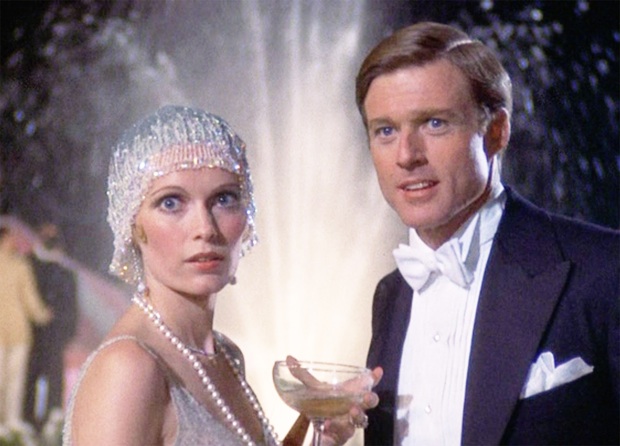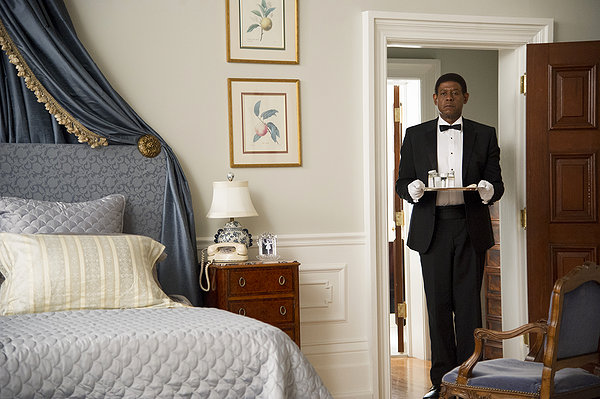 |
| EPCON 2012 |
My one great disappointment was that there were no real DVD sellers. I had a wish-list of DVDs but alas, nothing to purchase. Nothing in terms of comics because I didn't read comics as a kid and the only series I came close to following was The Blue Beetle (and that was only because it took place in my hometown of El Paso).
The only thing I did buy was an artist's rendering of four Sherlock Holmeses (from left to right): Basil Rathbone, Benedict Cumberbatch, Jonny Lee Miller, and Jeremy Brett. Alas, no Robert Downey, Jr.). The fact she knew who they were and could speak so easily about them made the sale.
Now, let me look over my Personal Impressions on EPCON 2013.
Things I Learned At EPCON 2013
1.) Elementary is More Liked Than Sherlock
I took an informal poll while walking the floor. At the booth where Holmes x Four was she mentioned that she liked Elementary and didn't understand why people disliked it. Rathbone and Brett were more Canonical in that they stuck to the time period (in the case of the former, not always) while Cumberbatch and Miller were more contemporary and thus, putting a different spin on the stories.
What did surprise me was that in said informal poll, it was Miller, not Cumberbatch, who was getting ahead in terms of popularity. The people I talked to seemed to prefer Elementary's Holmes than Sherlock's Holmes. I think it has to do in part with Miller's take being more likable, relatable, than Cumberbatch's take. Miller's Holmes may be an egotist, but he is also a recovering addict and a deeply flawed individual who lets the vulnerability slip through. Cumberbatch, on the other, does not confront any afflictions as far as I know (having seen only one Sherlock episode). I truly can't say whether Cumberbatch or Miller is the better 21st Century Holmes because I do not know enough of the former (and the fact that my heart belongs completely to Brett). However, I think part of Miller's rise and Cumberbatch's fall may be due to the fans.
Another artist (whom I'll talk about later) commented that for Sherlockians, they behaved as though there were no other Holmes prior or post-Sherlock, so their hatred for Elementary, this shameless impersonation, is borderline pathological. They may have a case, but why Sherlockians insist people like Brett and Rathbone are lesser than Cumberbatch in every way is a reaction against ANYONE playing The Great Detective. "For them," Artist Two told me, "this (pointing to a drawing she made of Cumberbatch as Holmes) is the Bible."
One thing that is certain is that even those who dislike Elementary have had nothing but praise for Lucy Liu's Dr. Joan Watson. Everyone I talked to has praised the fact that Dr. Watson is strong and intelligent, not willing to defer to Holmes all the time. Any doubts about a woman, especially an Asian-American woman, playing Watson have been dispelled, and in my informal survey she is favored more than Martin Freeman's Dr. Watson, who is leaning too much on the Nigel Bruce Model of Watson: the slightly bumbling, dim, almost deferential sidekick.
2.) SuperWhoLockians Are Just Plain Crazy
While conversing with another artist, I came upon this strange phenomenon. Looking over her art I commented they were very good, but she had an abundance of Matt Smith. My coworker Fabian asked if she had any David Tennant. She did...but forgot to bring any. I noticed she had a lot of Benedict Cumberbatch and Martin Freeman as Holmes and Watson, and said that if she had any Jonny Lee Miller and/or Lucy Liu I'd snap them up. She sheepishly said she liked Elementary and its take on Holmes & Watson and REALLY needed to do drawings of them.
As we looked over her work the artwork for Supernatural was shown. Again, she did a wonderful job, but I didn't know who they were since I've seen only one episode of the show. As we talked about the intense fervor of Sherlock fans I mentioned that those who call for the TARDIS to land in front of 221 B Baker Street were bonkers. I knew of these Wholockians, but now I was introduced to SuperWhoLockians: those who wanted a blending of Supernatural, Doctor Who, and Sherlock.
This is really whacked-out. Why would these two American brothers who hunt demons go to London, get to work with a sociopath detective who hunts murderers, and then find a time-travel machine landing in front of them? I don't find fanfiction silly: it's all in good fun. Television, however, is another matter. You are establishing Canon, and as much fun as blending things together may be, a supernatural-based series, a fantasy series, and a reality-based detective series will not work together. Too many genres crashing into another.
Crossover episodes have to be able to exist in both series' worlds and have a reason to do so. Law & Order crossing over with Homicide makes sense: both are reality-based cop shows. The Facts of Life meeting Diff'rent Strokes is logical: both are comedies that take place in a similar time period and whose settings are within travelling distances. Sherlock, Doctor Who, and Supernatural...what reason do they have for meeting?
Some fans need to really grow up.
3.) Neville Longbottom is Beloved
At the second artist's booth, I said that if she had a Neville Longbottom picture, I would have bought it right away. Maybe if there were a picture of Neville and Luna Lovegood (or as I call them, Dad and Mom), but alas nothing of the sort. A lot of Harrys though.
In any case, what I found was that Neville is a character whom I heard nothing bad about. He didn't start out as heroic. Far from it: bumbling, heavy, and more into plants than Quidditch, Neville was constantly sidelined until, as the story grew, his virtues of courage, moral strength, and honor started becoming valuable. Neville is not only one of my favorite Harry Potter characters, but in terms of performances I think Matthew Lewis grew from a secondary thought to a magnetic presence.
In short, no one I have ever talked to about Harry Potter at large has ever said anything bad about Neville Longbottom, and I don't think I ever will.
4.) A Knit Beanie is Enough for a Cosplay Outfit.
As Fabian and I were wandering around, someone swung Fabian around and complimented him on his costume. He looked confused, and asked him "What costume?" This other fellow then asked, "Aren't you dressed as Jesse Pinkman?" Fabian looked more confused because he didn't know WHO Jesse Pinkman was. I started laughing and told him, "You know. The little sidekick on Breaking Bad (and that is not an Aaron Paul short joke since Paul and I are probably the same height)." It took a few seconds for Fabian to put it together, and he was still a bit confused. He looks nothing like Aaron Paul. It was then mentioned that Jesse wears a lot of beanies on the show, and since Fabian was wearing one...
Truth be told, that's Fabian's regular casual wear. We both had good laughs about this. I told him since Breaking Bad takes place in Albuquerque, maybe Fabian could be Jesse's Mexican cousin. Cosplay is fun I imagine (I am far too old-fashioned to dress up as anything). However, I'm of the type that believes costumes should be a little more elaborate than a beanie. Still, so long as everyone is having harmless fun I support it.
5.) The Vatos Are Really Nice Guys
I had nicknamed EPCON 2013 Walking Dead CON given the high number of Walking Dead cast members who were there. We had primarily the Vatos, the Hispanic gang members who survived the initial plague. Now, having known some vatos personally (though I am far too bourgeois to be anywhere near a 'vato' myself) their screen appearance looks convincing. However, Anthony Guajardo (Miguel) and Noel G. (Felipe) are in real life nothing like the Vatos.
In fact, when I went to their panel, both had a great sense of humor, particularly Noel G. (even if WASPy me kept calling him Nol versus his pronunciation of No-El). In fact, I can't believe no one has cast Noel G. in a comedy, almost spoofing his hard-care image. He is quick-witted and amusing, able to laugh at his screen persona and the odd moments in his career (such as when monkeys flew out of his behind in Bruce Almighty). Given this and that in Vatos Daryl shoots Felipe in the posterior, he wisecracked, "Producers have an obsession with my butt".
As for Guajardo, he is a very down-to-earth, pleasant fellow who is appreciative of his fans. I'm not one of them only in that I have never seen The Walking Dead (though I didn't mention that to them). However, I was so impressed with both of them that I opted to have my picture with him. The fact that he didn't charge for pictures, unlike last year's guests, where everyone charged me ten dollars for posing with them (except for Erin Grey, who donates her photo fees to a battered women's shelter she's on the board of, and Eric Roberts, who gave me a five dollar discount for bringing my own camera...I didn't bother asking) impressed me more.
I won't put that picture up for a few reasons. I never photograph well (I always think my face sticks out from the rest of my head) and worse, I look fat (which I'm not). I also want a close-up than the full-body picture I got. Then again, there's always next year.
EPCON 2013 was on the whole not bad. I just hope that EPIC in March, where Deep Roy* (the Oompa-Loompa in Charlie & The Chocolate Factory, Mr. Sin in the Doctor Who story The Talons of Weng-Chiang) is scheduled to appear, has DVDs. I also found the panels a bit of a wash (apart from Noel G/Guajardo). The Nerds With Issues panel, where a group of dressed up kids mocked anime, television shows, their fans, and video games in some effort of comedy, was not funny. Also, by having the costume contest above the floor the walkway was often blocked to where I had to fight to get across often.
Apart from that, I think EPCON 2013 was a good time for the family.
*Standing next to Guajardo, who is listed as 5'9", I found myself about a half to full inch shorter, which verifies my height of 5'8". If the 4'4" Roy turns out to be taller than me, it will just devastate me.
